
Viking Names
Stein
Originally a byname, Steinn ‘stone’ is a very common personal name across Scandinavia. It appears early and remains fairly common as a personal name in both Norway and Iceland. As a personal name, the later form Sten is fairly common in Sweden and Denmark. Several instances are recorded as a byname in Denmark, possibly as a loan from Sweden. The name may also be found in a place-name in Normandy. It is also the first element in Stenson, Derbyshire.
Read More
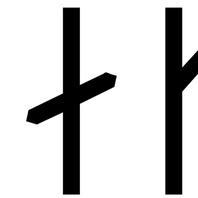
Viking Names
Klakk
Klakkr, an original byname from Old Norse klakkr, probably a ‘peg on saddle on which baggage is hung’, appears in a few recordings in West Scandinavia. The name is related to the byname Klakka, which appears early and often in West Scandinavia. Klak is also recorded in Sweden and found in some Danish place-names. Klakkr is the first element of Claxby, Lincolnshire.
Read More
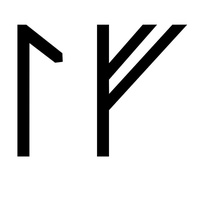
Viking Names
Ulf
Úlfr is a very common name throughout Scandinavia, meaning ‘wolf’. It is also frequent in England, occurring both independently and in place-names like Ulceby Lincolnshire and Ullesthorpe, Leicestershire. While Old English has a personal name element Wulf, common in compound names such as Wulfstan, it is very rarely used on its own as a monothematic name, unlike the Old Norse cognate. The Old Norse name can also be found as both the first and second element in compound names, such as Úlfgeirr or Þórulfr. The name is also found in a sundial inscription from Aldbrough, East Yorkshire, along with the female name Gunnvor.
Read More

Viking Names
Temple Normanton
Temple Normanton, in the Scarsdale Hundred of Derbyshire, takes its name from the Old English ethnonym Norðman ‘Northman, Norwegian’ and the Old English element tun ‘farm, settlement’. There are several places of this name, predominantly in the East Midlands: five in Nottinghamshire, also others in Derbyshire, Leicestershire, Lincolnshire and Rutland, and one in the West Riding of Yorkshire. Previously the prefix was North to distinguish it from South Normanton. The prefix Temple refers to previous ownership by the Templars. Traditionally, the place-name has been interpreted as referring to a settlement of Norwegians (in an area where most of the Scandinavian settlers were Danes). However, the exact implications of such a name are not yet fully understood and are the subject of ongoing work by Dr Jayne Carroll of the Institute for Name-Studies, University of Nottingham.
Read More
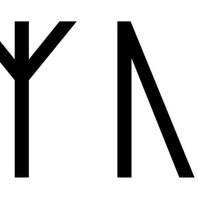
Viking Names
Vigmund
Vígmundr is an Old Norse compound name containing the elements Víg- ‘battle, strife’ and -mundr ‘protector’ or alternatively ‘gift’. It seems to be found in a place-name in Norway and a few instances are recorded in Swedish runic inscriptions. A name Wimund(us) occurs fairly frequently in Normandy and men of this name are recorded in Domesday Book as present in Lincolnshire. Vígmundr or its Old English equivalent, Wigmund, is the first element of the place-name Winthorpe, Nottinghamshire.
Read More

Viking Names
Bjornulf
Bjǫrnúlfr is an Old Norse compound name from Bjǫrn- ‘bear’ and -úlfr ‘wolf’. The name appears early in Iceland, but aside from place-names not until late in Norway. Possibly found in a place-name in Normandy. The name is well attested in personal names and place-names in Lincolnshire and Yorkshire evidenced by Barnoldby le Beck, Lincolnshire. However, many of the forms in these counties may also represent the Old English male personal name Beornwulf.
Read More
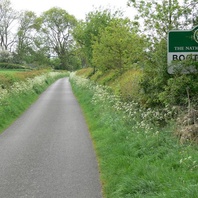
Viking Names
Boothorpe
Boothorpe, in the West Goscote Hundred of Leicestershire, probably comes from the Old Danish male personal name Bo (Old Norse Búi) and the Old Norse element þorp ‘outlying farm, settlement’. Alternatively, the first element of the place-name could be Old English boga or Old Norse bogi ‘bow’ which would be topographically appropriate because the settlement lies on a curving hilltop.
Read More
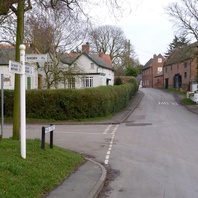
Viking Names
Shoby
Shoby, in the East Goscote Hundred of Leicestershire, is a Scandinavian compound from the Old Norse male personal name Sigvald, a reflexive of Sigvaldr/Sigvaldi and the Old Norse element by ‘a farmstead, a village’. It may replace an earlier place-name meaning ‘Sigewald’s fortification’ from Old English byrig (dative singular of burh).
Read More
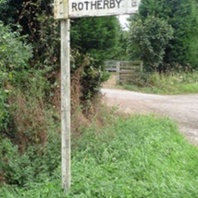
Viking Names
Rotherby
Rotherby, in the East Goscote Hundred of Leicestershire, comes from the Old Norse male personal name Hreiðarr and the Old Norse element by ‘farm, settlement’. The personal name here might be the same as that in Rearsby, Leicestershire. Later forms of the name show influence from Middle English rother ‘an ox’. Rotherby is now a joint parish with Hoby.
Read More
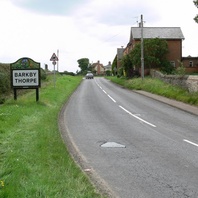
Viking Names
Barkby Thorpe
Barkby Thorpe, in the East Goscote Hundred of Leicestershire, is originally a simplex name from Old Norse þorp ‘a secondary settlement, a dependent outlying farmstead or hamlet’. This was a secondary settlement dependent on adjoining Barkby, thus the affix.
Read More
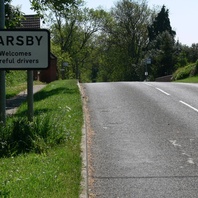
Viking Names
Barsby
Barsby, in the East Goscote Hundred of Leicestershire, likely comes from the Old Norse male personal name Barn, originally a byname from Old Norse barn ‘a child’, and the Old Norse element by ‘a farmstead, a village’. Alternatively, the first element may be barn itself.
